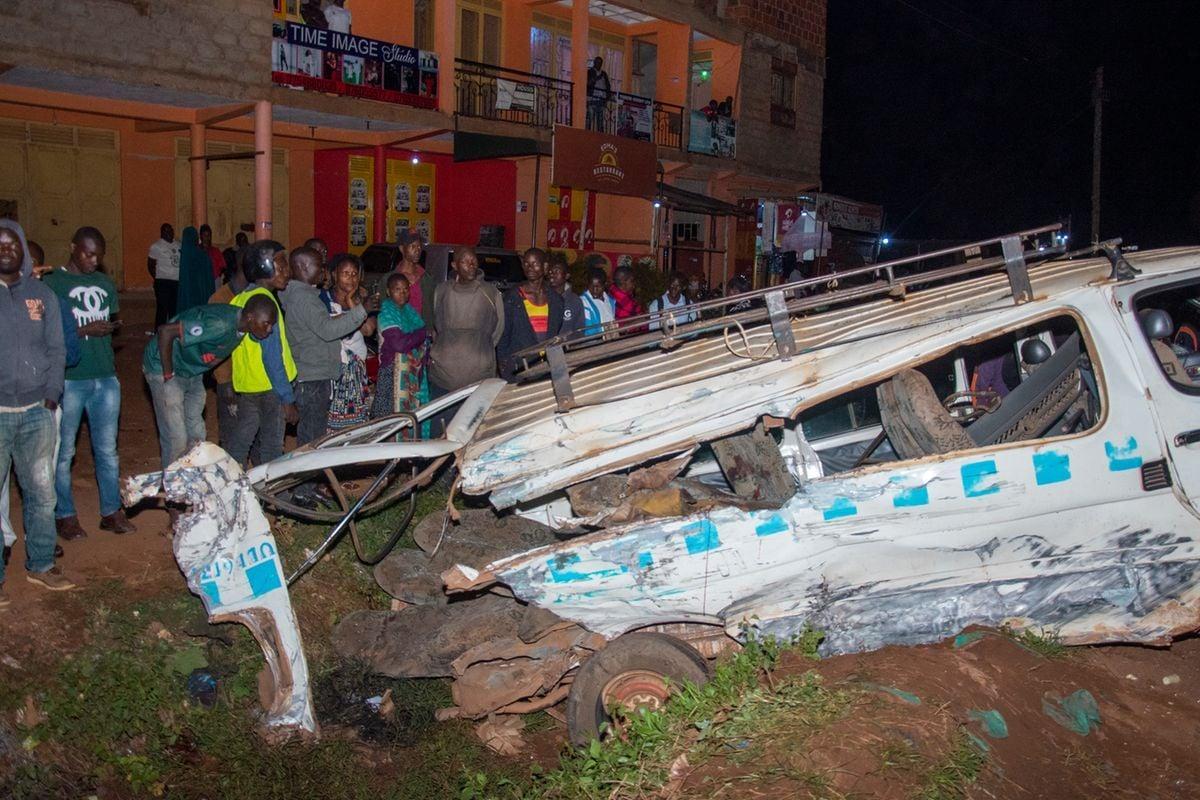Africa-Press – Uganda. Mulago National Referral Hospital has reported a three-fold increase in patients who require emergency surgery as a result of accidents, linking it to the rise in road crashes.
Dr Michael Edgar Muhumuza, the head of neurosurgery at the facility, revealed this on Thursday afternoon while announcing a surgical camp that the hospital will run from October 2 to October 6.
“About five months ago, on average, in our causality theatre, we would attend to about 10 to 12 patients per week, but as I speak now, we attend to a minimum of 30 patients a week, and sometimes it goes to close to 40,” he revealed, adding, “It is three-fold [increase]. I don’t know, there is madness out there, I don’t know what is happening. This business of crisscrossing the roads, riding in the opposite direction and not wearing helmets should go down. The numbers [of victims of road crashes ending up in the hospital] have gone up.”
Dr Muhumuza also said children are among the affected, adding that “they are hit while they are walking to school, which is very sad. The police who bring them, do so very early when their parents don’t know. It is very sad.”
He also revealed thus: “The other category where we have seen children with head injuries, especially due to boda boda accidents, is when they are playing in their home areas and they are hit while they are crossing the road. The cases are seasonal and I don’t know why. As I speak now, we have four children with head injuries.”
According to the 2022 Police Annual Crime Report, 650 children (395 males and 255 females) below the age of 18 died due to road crashes in the country. That year, there were about 20,394 road crashes that killed 3,901 people.
“The number of fatal crashes increased by 17 percent from 3,757 in 2021 to 3,901 in 2022,” the 2022 report reads.
Spillover effects
Dr Nobert Orwotho, the head of surgical services at Mulago hospital, said earlier that the victims of road crashes are the major reason other patients (with ailments) delay to be operated [on]. This, he added, is because accident victims are handled as emergency cases.
A 2020 report of a study done in Mulago hospital by Sharif Kikomeko of Habib Medical School, Islamic University in Uganda, shows the overall mean waiting time to surgery was about one month.
“Of the 412 surgeries scheduled at the Mulago main hospital theatre between June and August 2014, one hundred nineteen were rescheduled. Healthcare system factors were mostly responsible for the rescheduling,” the report reads, adding, “For most surgical conditions, prolongation of surgery leads to increased disease severity and probability of complications (resulting in deterioration of health status, and prolongation of suffering), and death.”
The management of the facility also revealed in June this year that they spend more than Shs76 million daily to treat victims of road accidents. This money, Dr Gideon Kirugamba, a surgeon at the emergency unit of the facility, said goes to cater to human resources, blood tests, and purchasing medicine.
“We spend Shs3.6 million per severely injured patient who does not require surgery. If one has to undergo surgery, it goes to Shs13.6 million. Those moderately injured, require Shs2 million, and those mildly injured, it is between Shs1.5 million and Shs1.8 million,” Dr Kirugamba said in June.
SP Michael Kananura, the spokesperson for the Directorate of Traffic and Road Safety at the Uganda police force (UPF), recently told Saturday Monitor that the causes of these accidents are “purely reckless driving—particularly speeding and improper overtaking.”
“We have had the majority of them being single accidents. It is entirely the behaviour of these drivers on roads,” he noted, adding that they are increasing awareness of road safety and enforcing traffic regulations to curb the cases.
Surgical camp
On the next week’s surgical camp, Dr Orwotho said they have more than 80 surgeons who can handle patients.
“The hospital has about 16 sub-specialties, each of those units has around five surgeons. We have around 80 surgeons in Mulago. We shall also have colleagues from outside Mulago to make the work faster and easier,” he said.
“The number of doctors on the ground will be big. We expect many patients to come. Those who can be operated will be handled and those who cannot be handled will be scheduled. We expect to do many surgeries. Some surgeries have already been planned. We shall handle about 4,000 patients,” he added.
Dr Rosemary Byanyima, the director of the facility, told journalists on Thursday afternoon that the services will be free of charge.
“Come Monday, October 2 to October 6, Mulago National Referral Hospital will hold an open week where we are showcasing surgical services. We shall be receiving and screening patients, giving them health education, those who need surgical services, and we are able to offer them [the] same week, we shall,” she said.
“Those who need to be booked, they will be booked. Those who need to undergo the surgery will go through the procedure of preparing them for surgery, including the screening tests and consenting the way we do it professionally. When you are running the surgical camp, the supporting services like the Intensive Care Unit (ICU) will be ready to receive those surgical cases which need ICU after surgery. Diagnostic services like laboratory tests and X-rays will be run. These will be free of charge,” she added.
For More News And Analysis About Uganda Follow Africa-Press






